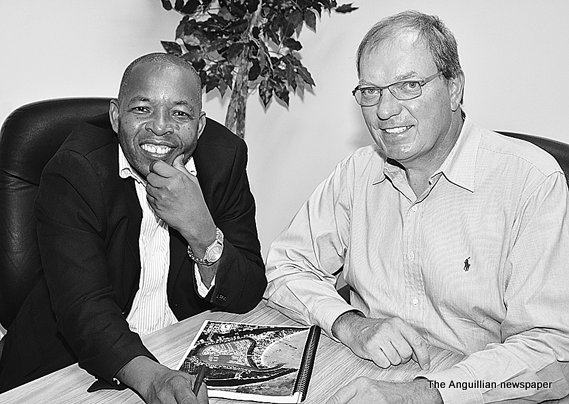In less than two years Anguilla’s general elections will again be constitutionally due. As the date for elections approaches it often appears as if all sense of reason is lost, both on the part of the incumbent government and the parties or individuals seeking to unseat the incumbents. This invariably leads to a state of chaos among the electorate, which many persons feel may actually be the desire of most persons seeking elected office.
The general failure of persons seeking elected office to demonstrate sound reasoning abilities, on the eve of elections, often results in essential policies being subjected to unhelpful and potentially destructive criticism or in much needed projects and initiatives being derailed because the success of the project would make a particular political party or individual look good, on the eve of elections.
One apparently essential policy, which was the subject of much criticism in the lead-up to the 2015 general elections, is the Interim Stabilisation Levy (ISL). This Levy, which was implemented by the Hubert Hughes led administration of 2010 to 2015, was roundly criticised by the Anguilla United Front. The electorate was led to believe that with the election of the AUF one would quickly see the end of the ISL. This was not to be and the ISL is still with us and for good reason. The ISL on an annual basis assures the Government of approximately 15 million dollars in revenue. The AUF team despite its apparently genuine desire to get rid of the ISL has not been able to do so as the Government of Anguilla is heavily reliant on the ISL to meet its annual expenditure. This was the case under the Hubert Hughes administration of 2010 to 2015 and remains the case under the incumbent Victor Banks led administration.
Was it an absence of reasoning that prevented the AUF team from realising that the ISL could not be so easily terminated, or was this a case of a deliberate desire by the AUF to mislead the electorate? It appears to have been a lack of reasoning, as upon being elected to office it is understood that public officers were hard-pressed to dissuade the AUF administration from its expressed intention of removing the ISL. In any event, poor reasoning or deliberate attempts to mislead the electorate are both unacceptable from persons who desire to lead Anguilla and who present themselves as being capable of doing so. It is hoped that the next elections will not be plagued with either of these practices.
Both the electorate and those vying for elected office have roles to play if we are to replace the rhetoric experienced in previous elections with meaningful dialogue. The electorate must seek and understand the facts surrounding the functioning of Government and its current and future plans, and elected officials must aspire to such high ethical standards that they will not intentionally mislead the electorate – and will seek information so as to first understand issues and then secondly communicate accurately with the electorate on such issues. I believe that if meaningful change is to be seen in the dialogue between the electorate and those vying for elections, in the next general elections, greater reliance must be placed on the electorate to arm itself with a proper understanding of the government’s operations and initiatives. Sadly, individuals vying for elected office are likely, despite their best intentions, to revert to deceptive practices or to formulating and communicating positions that are not based on evidence, just to ensure success at the polls. The only thing standing between politicians and these harmful practices is a thinking and well researched electorate.
Members of the electorate often blame their state of ignorance on the absence of information from the incumbent government. This excuse is not as relevant today as it may have been in the past. While information is still not as readily available as may be desired, useful information can now be accessed through media houses which engage in objective news reporting and interviews, and from public officers who share information through radio programmes and consultative programmes in our communities. Proposed legislation supporting new initiatives is also often circulated for public comment before passage in the House of Assembly.
The stage is being set for the electorate to demand higher standards of discourse from those seeking elected office. The stage will, however, only be complete when the electorate demands more of itself. Will the electorate actively seek the information which will allow it to challenge the electoral candidates from an informed position? This is a question each person, who makes up the electorate, must answer for him or herself.








